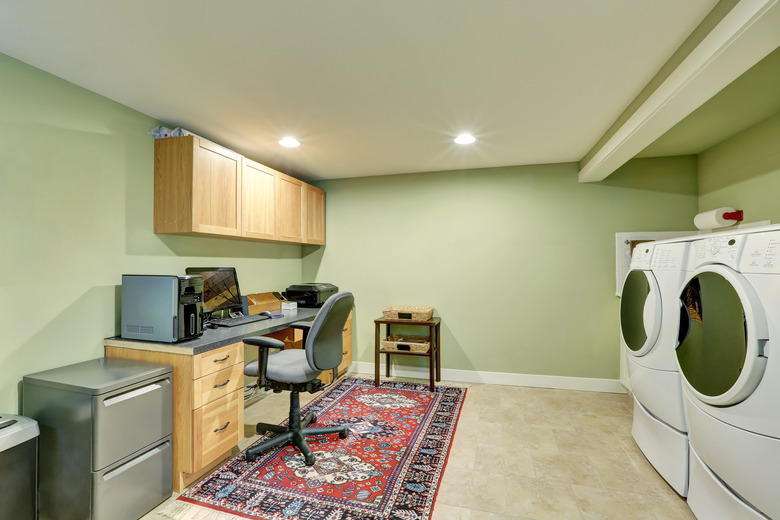What Is An Ejector Pump?
We may receive a commission on purchases made from links.
An ejector pump is sometimes part of a home's plumbing system. At times, it's necessary to install a washing machine, toilet, sink, or other water-using items below ground level. Unfortunately, this can also put them lower than your sewer line. An ejector pump solves this problem by collecting wastewater from your home and then pumping it up into the main line.
Tip
An ejector pump pumps liquid and solid waste into the main sewer line of a home. These pumps are utilized when bathrooms and water-using appliances fall below the main sewer pipe.
Sump vs. Ejector Pumps
Sump vs. Ejector Pumps
People often confuse sump pumps and ejector pumps, and it's easy to see why. They look very similar and each one is installed in a pit in your basement floor. The two serve very different purposes, however. The pit for a sump pump may remain open, but an ejector pump pit must have a cover.
A sump pump system gathers water from the basement and pumps it out of the house to a dispersal device or nearby storm drain. The goal of the sump pump is to remove excess water that collects in a sump pit. The ejector pump does something else entirely.
An ejector pump also gathers water, but it's plumbed into the house. It gathers water from any sinks, toilets, showers, or water-using appliances that fall below the main sewer line. It then pumps this wastewater up into the main sewer line of the home for disposal. Depending on the source, the water in your sump pump may or may not contain bacteria. The water in your ejector pump absolutely does.
Installing an Ejector Pump
Installing an Ejector Pump
When installing an ejector pump in your home, you need to check your local building codes first. You may need a permit, and you will have venting and other requirements you must meet. The installation itself is fairly complicated since the first thing your plumber will need to do is excavate the ejector pump hole and get plumbing to it. This can involve running plumbing under the concrete basement floor.
Installing the pump also requires that you install a check valve, place the new pump, and plumb it in. You also need to install the ventilation components and provide an electrical outlet for the pump. The average cost for a professional ejector pump installation is between $2,500 and $4,500.
Ejector Pump Tips
Ejector Pump Tips
When choosing an ejector pump for your home, pay attention to how much horsepower the pump motor generates. A small family of three, for example, may need only 1/2 horsepower but should consider moving up to 1 horsepower. Large families need 1 horsepower at a minimum. The more horsepower the pump generates, the more waste it can move. The more waste it can move at a time, the less often it will need to run. The less it runs, the longer its lifespan.
The amount of waste you're dealing with is also a factor in sizing your pump. A basement powder room won't require as much pumping power as a full bath with a shower. Your plumber will be your best source of information about your specific needs.
You may also have to decide whether cost or value matters more. You'll find both metal and thermoplastic ejector pumps when you start shopping. The plastic is lighter and less expensive, but it may not last as long as a solid metal pump. The average lifespan of an ejector pump is seven to 10 years, but they can last much longer with routine inspections and maintenance.
After installing your ejector pump, make sure you follow the manufacturer's recommendations for inspections, pit cleaning, and any necessary routine maintenance. Doing so can greatly lengthen the useful life of your pump. Make sure you're careful about what you flush or run down your drains too. Feminine hygiene products, oil, "flushable" cat litter, coffee grounds, and other items can clog your ejector just as they can clog your drains.
References
- Tractor Supply Co.: Sewage / Septic System Pump Buying Guide
- Jim Dahmer Plumbing and Sewer, Inc.: 3 Tips to Keep Your Ejector Pump in Good Shape
- How Much Is It?: How Much Does an Ejector Pump Cost?
- Nearby Engineers: Installing a Sewage Ejector Pump: All You Need to Know
- Sump Pumps Direct: Sewage Ejector Pump Installation Guide
